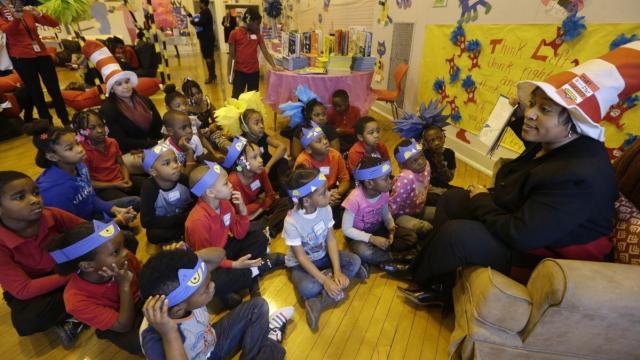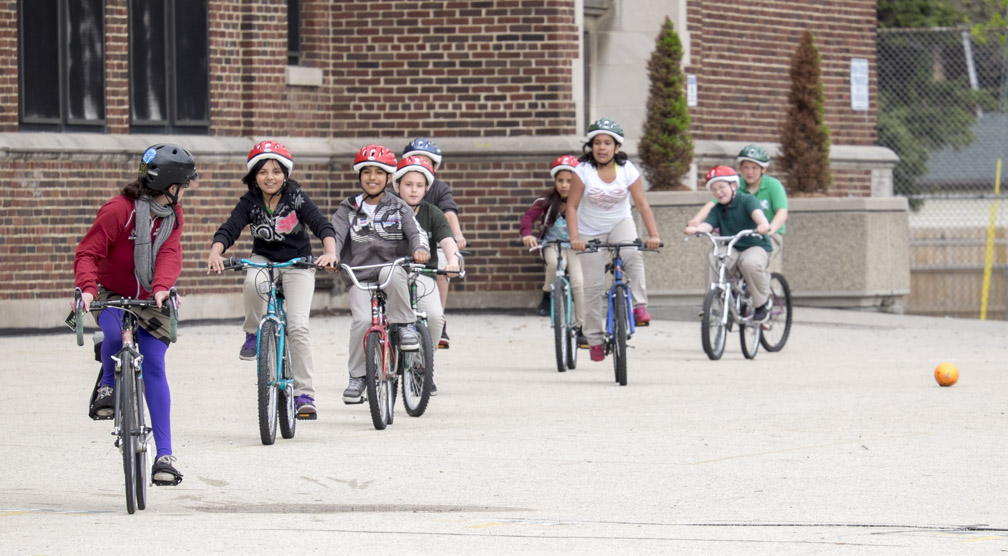
Students, parents and activists in Milwaukee are claiming a huge victory after the state suspended its efforts to privatize dozens of schools and force more than half of Milwaukee’s public school students into its voucher program.
State Superintendent Tony Evers announced last month that none of Milwaukee’s at-risk schools satisfied the criteria for takeover. His statement – which came after more than a year of demonstrations by teachers, students and parents – marked the death of the Opportunity Schools Partnership Program (OSPP), a Republican-led agenda that outlined plans to privatize up to three Milwaukee public schools in 2016, and up to five schools per year thereafter.
The plans would restrict public input in the function of Milwaukee area schools while rerouting millions of dollars in public funding from the already cash-strapped school district.
While the state’s suspension of OSPP was officially attributed to increased test scores and an updated criteria for grading schools, months of resistance from staff, students and community organizers ultimately brought the program to a standstill. Milwaukee Public Schools supporters began picketing outside schools in June 2015, drawing crowds at “walk-ins” before class at 30 public schools in the city. By October 2016, these protests grew to include 117 schools.
Resistance from MPS staff also played a role in disrupting takeover plans. Stubborn opposition from teachers and MPS Superintendent Darienne Driver forced the resignation of “takeover czar” Demond Means in June 2016. Means, in a statement following his resignation, acknowledged that “as implementation of the law moves forward, the environment is not conducive to collaborative partnerships – something essential for positive things to happen in Milwaukee.”
The victory is being seen as a setback for Milwaukee’s voucher program, which has already redirected over 40 percent of Milwaukee students from public schools to private schools, making it one of the largest voucher programs in the country. The program is also among the oldest in the country, launched in 1990 as an alternative to the state’s “monopoly” on education under the direction of then-Governor Tommy Thompson.
It also comes at a curious moment, as President-elect Donald Trump last week nominated Betsy DeVos, a Michigan billionaire and strong proponent of school vouchers, to head the federal Department of Education.
The Milwaukee voucher’s pilot program, which began with just 350 students and seven schools, offered few obvious success stories. During the program's first years, students and parents alike cited numerous ways that privatized schools were failing in basic measures of competency – from experiencing food shortages to inconsistent transportation, and from plumbing failures to abrupt school closures.
Despite early signs of trouble, the system nonetheless expanded. In 1998, it got its biggest boost when the Wisconsin State Supreme Court ruled that vouchers could be used for students leaving MPS for religious schools. The ruling rerouted public dollars from MPS to private schools – many of them parochial schools with independent revenue streams – exacerbating the resource shortages already occurring in Milwaukee’s public schools.
Recent efforts at reforming voucher schools have failed to show significant improvement. For every account of an accomplished voucher school, there are several failures. Voucher schools in many cases have closed without notice, operated without any educational objectives – and in some cases, never even opened in the first place.
But attempts to reign in these schools have proven difficult. Not only are the schools disconnected from democratic community input. They also lack any governance structuring resembling a school board, and leaders of the schools have often shown themselves to be evasive. Case in point: when reporters with Milwaukee's local Fox affiliate invited 11 charter school leaders to their studio for an on-camera conversation, only two of the school heads showed up.
Yet despite its troubling 26-year history, the battle over MPS autonomy is far from over. State Rep. Dale Kooyenga, one of the two OSPP authors, promised that more MPS reforms were on the way. And the state’s own account of events – in which it claims report card adjustments saved MPS – give little credit to the public outcry and action that ultimately stalled the bill.
Opponents of OSPP have reason, however, to be hopeful. The bill mobilized a huge coalition of individuals, and Driver is now using the victory to put forth an ambitious plan for MPS to take control of charter school approvals – a move that could rebuild the nonexistent accountability structure for charter schools.
The victory has still surprised some people, including Milwaukee Teachers’ Education Association President Kim Schroeder, who noted with relief that “something actually went our way.” In a state that has steadily alienated its progressive voices – not least by voting earlier this month to elect Donald Trump as president – that surprise may be exactly what teachers and students needed to push for greater conditions in Milwaukee's public schools.
3 WAYS TO SHOW YOUR SUPPORT
- Log in to post comments












